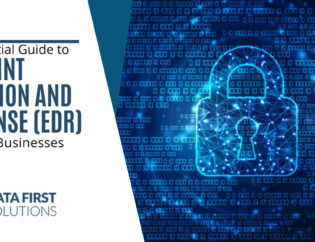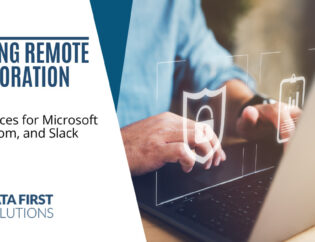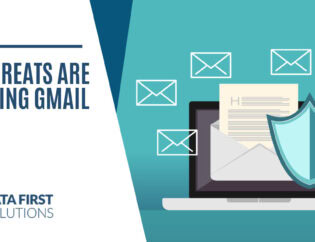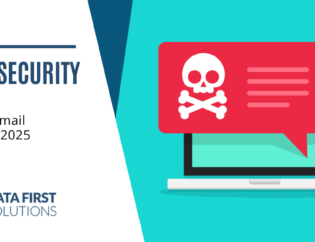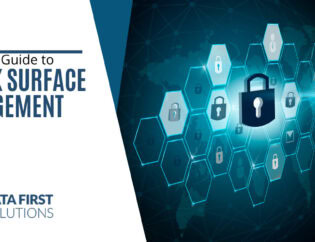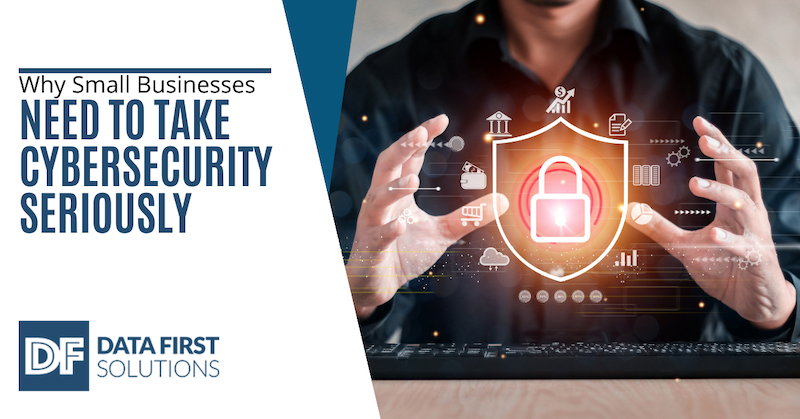
To cybercriminals, personally identifiable information, customer lists, and employee payroll records are valuable, whether they come from a small business or large enterprise. Therefore, it is erroneous to think that criminals are only after massive companies and would not give small businesses a second thought.
Some of the massive cyberattacks that have taken place were carried out in small businesses. A good example is an attack that affected an HVAC contractor that was breached to get to one of its clients, the retail giant Target. Statistics have also shown that 67% of companies with less than 1000 employees have witnessed a cyberattack.
The above information makes it evident that all businesses require cybersecurity measures to protect them. Since it is now glaring that cybercriminals are not selective when trying to carry out an attack, there is a need for small businesses to tighten their security posture.
Let’s examine why cybercriminals are particular about small businesses and how to protect your small business.
Why Are Small Businesses Easy Targets?
Small businesses do not have the capacity of large organizations, yet cybercriminals are constantly targeting them. Some of the reasons are:
- Data: Hackers know that small businesses have valuable data that will benefit them. The Dark Web is a marketplace they use often for selling all types of data, from company banking details to employee and customer lists.
- Computing power: Cybercriminals can use a company’s computer to carry out DDoS attacks—the DDoS works in a manner that will generate traffic and disrupt services to a company.
- Company’s relationship with others: Many cybercriminals know that small businesses often work with giant corporations. So, to get to those companies, they go through small businesses.
Can Small Businesses Afford Cybersecurity Practices?
A good number of small business owners will argue that they can’t afford cybersecurity practices because it is too expensive. About 40% of small businesses do not have proper cybersecurity measures in place.
Contrary to what many small business owners think, it is safe to admit that many small businesses easily fall victim to hackers because of recklessness and a carefree attitude. The cost of employing cybersecurity measures is nothing compared to losing reputation, finance, data, and even an organization’s clients.
Cybersecurity measures do not guarantee that small businesses become immune to attackers. However, it makes the work of the hacker difficult. Many cybercriminals look in the direction of a small business because they realize that small businesses don’t prioritize security.
This action is synonymous with an individual who lives in a high-crime neighborhood and refuses to secure the physical environment. What do you think would happen? Exactly! The same applies to a small business that operates without any security measures. Thus, small businesses can afford cybersecurity measures considering the advantages outweigh the cost of an attack.
How Small Businesses Can Take Cybersecurity Seriously
Employee Training
Cybersecurity begins with training employees. This is because employees are the weakest or strongest link. For this reason, organizations must invest in cybersecurity awareness training for their employees, which includes the use of passwords and penalties for violating stipulated laws.
Protect Company’s Devices
The most frequent attacks are on endpoint devices connected to the company’s network. All of these devices must be updated regularly. Computers and mobile devices also need to have an antivirus installed and added protections like a firewall and DNS filtering.
Get a Backup plan
An effective cybersecurity strategy is not only necessary in preventing an attack from happening. Having a backup plan is essential for protecting the data of an organization. Backup and recovery can save a small business from permanent closure after a ransomware attack because it allows them to restore their data without the need to pay an expensive ransom.
When employees back up data using the organization’s computer, the information on the computer can easily be wiped out. But if stored in the cloud, it is easy to generate a backup for it.
Using A VPN
Another good way small businesses can take cybersecurity seriously is by using VPN. One of the best ways for small and medium-sized companies to stay protected is through encrypted tunnels that VPN provides. The tunnel ensures that messages are sent in an encrypted form. This prevents anyone from tampering with data. Decrypting it won’t be easy, even when they lay their hands on the data.
Cybersecurity For Small Businesses
Cybercriminals are lurking around, trying to exploit any threat in an organization’s system. Unfortunately, even small businesses are not immune to their numerous attacks. This is why small businesses must take cybersecurity seriously and protect their system from cyberattacks.
For cybersecurity best practices for your small businesses in the Greater Toronto Area, contact us at 416-412-0576 to get professional support.



